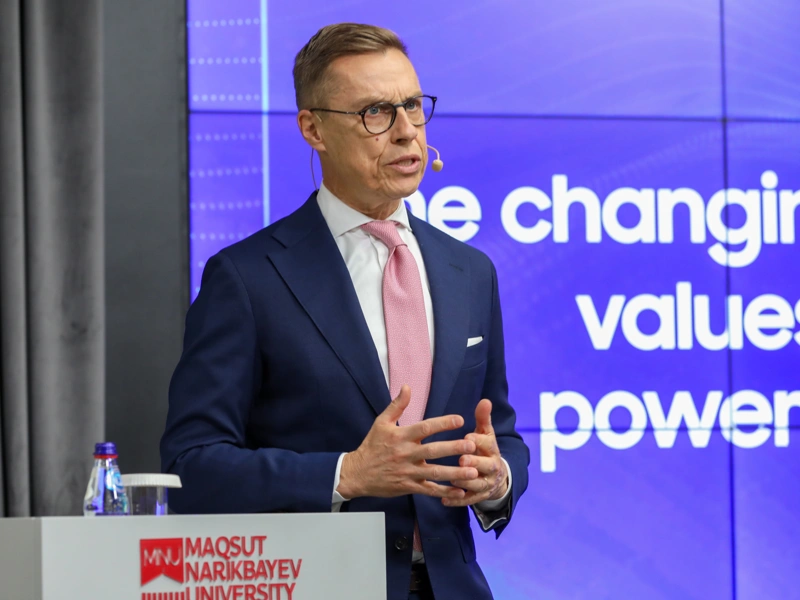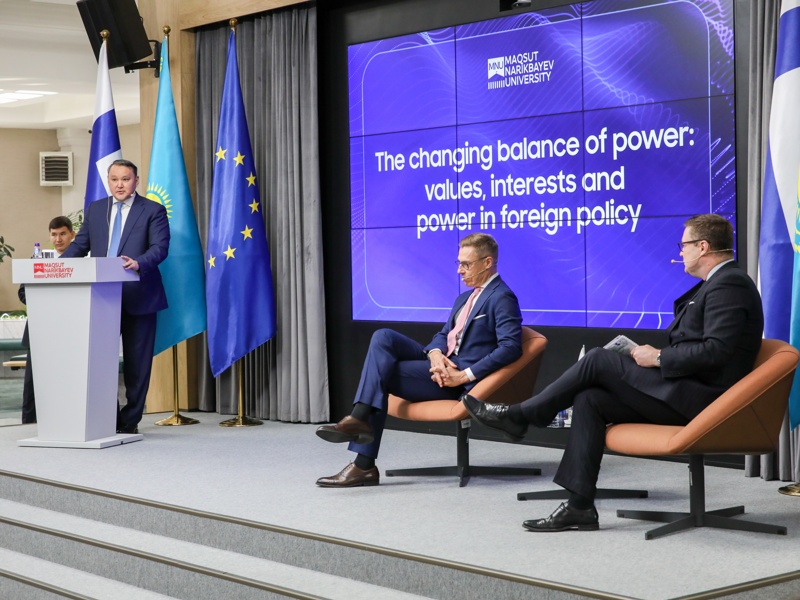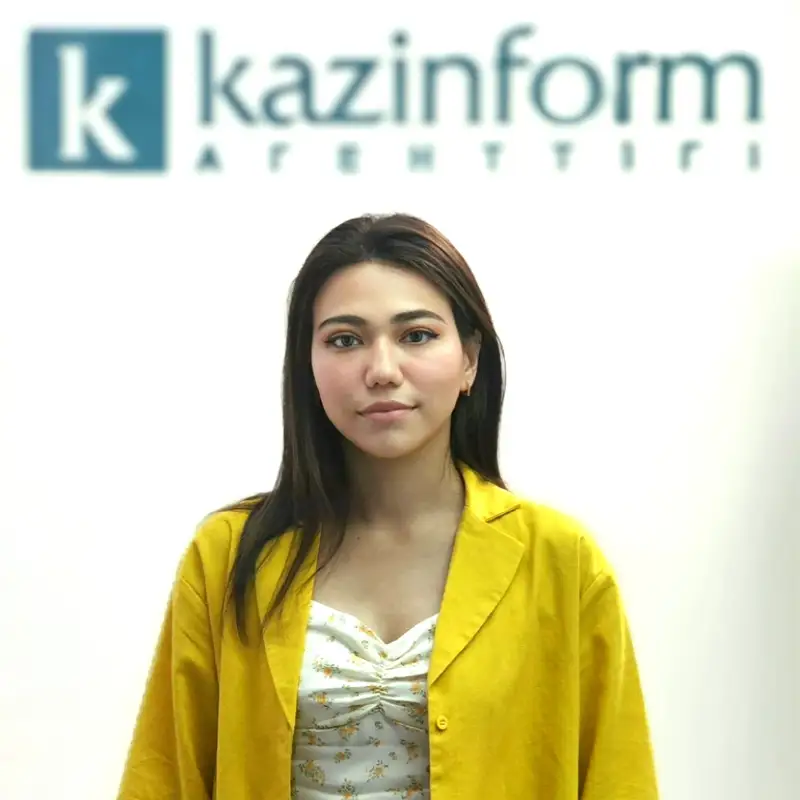Finnish President Alexander Stubb outlines shifting world order in lecture at MNU
Finnish President Alexander Stubb delivered a lecture at Maqsut Narikbayev University (MNU) in Astana, sharing his vision of the changing international system, the balance of power, and the role of smaller nations in an era of global uncertainty, Kazinform News Agency reports.

Speaking before students and faculty, President Stubb said the world is entering a period of profound transition comparable to earlier turning points in modern history.
“We have moved from the bipolar world of the Cold War, through a unipolar moment dominated by the United States, to today’s multipolar reality — one that is, by definition, complex and unpredictable,” he noted. “For your generation, this is our 1945 or 1989 moment — a time when the world order itself is being reshaped.”
The Finnish leader observed that power is increasingly distributed among major, middle, and emerging players, while technological disruption and new alliances redefine global politics.

“The key question today is whether we move toward multipolar transactionalism — a world of deals — or back toward genuine multilateral cooperation,” he said.
Drawing on his forthcoming book The Triangle of Power, President Stubb explained that global dynamics now revolve around three spheres — the Global West, the Global East, and the Global South.
“My thesis is that it will be the Global South that determines how this next phase of world order evolves,” he said.
He added that countries such as Finland and Kazakhstan, though mid-sized, have a meaningful role as bridges between larger powers, fostering dialogue, education, and rules-based cooperation.
President Stubb highlighted three enduring pillars of foreign policy — values, interests, and power — arguing that modern diplomacy depends on how nations reconcile them.
“Values such as human rights, freedom, and the rule of law are universal. Interests are not. The challenge is to bring them together without ending up in a world where the powerful dictate to the rest,” he said.

He reminded students that diplomacy is never static: “There is no final state in international relations. It is a continuous process that must be nurtured and renewed.”
Addressing the students directly, the President encouraged them to take an active part in shaping the future.
“History rarely repeats itself, but it often rhymes. What we do in the next five to ten years will define what this century looks like,” he said.
During the discussion that followed, Stubb also touched on topics ranging from climate policy to language education and minority rights in Finland.
Last September, during his official visit to Kazakhstan, Federal Chancellor of Germany Olaf Scholz also visited Maqsut Narikbayev University, where he met with students to discuss water cooperation, infrastructure development, and the rise of far-right movements in Europe.
